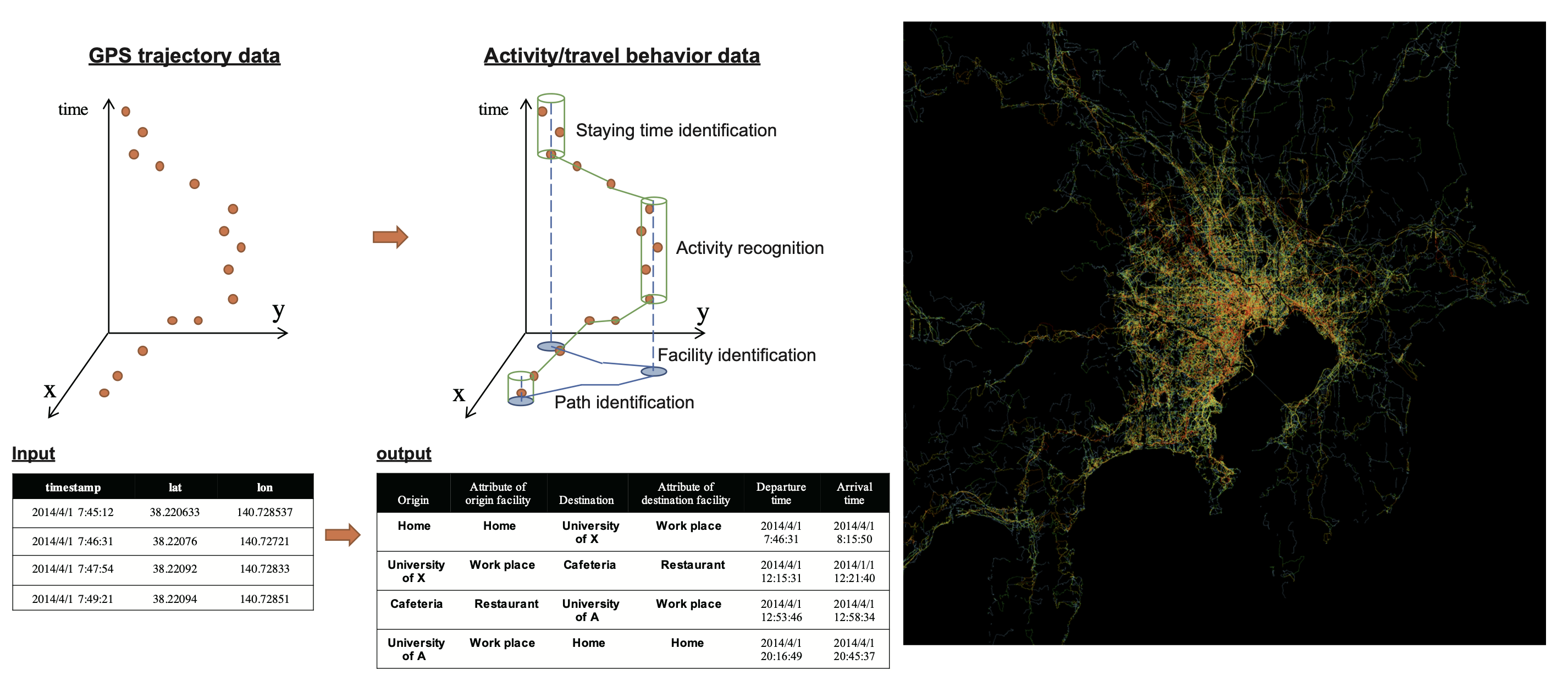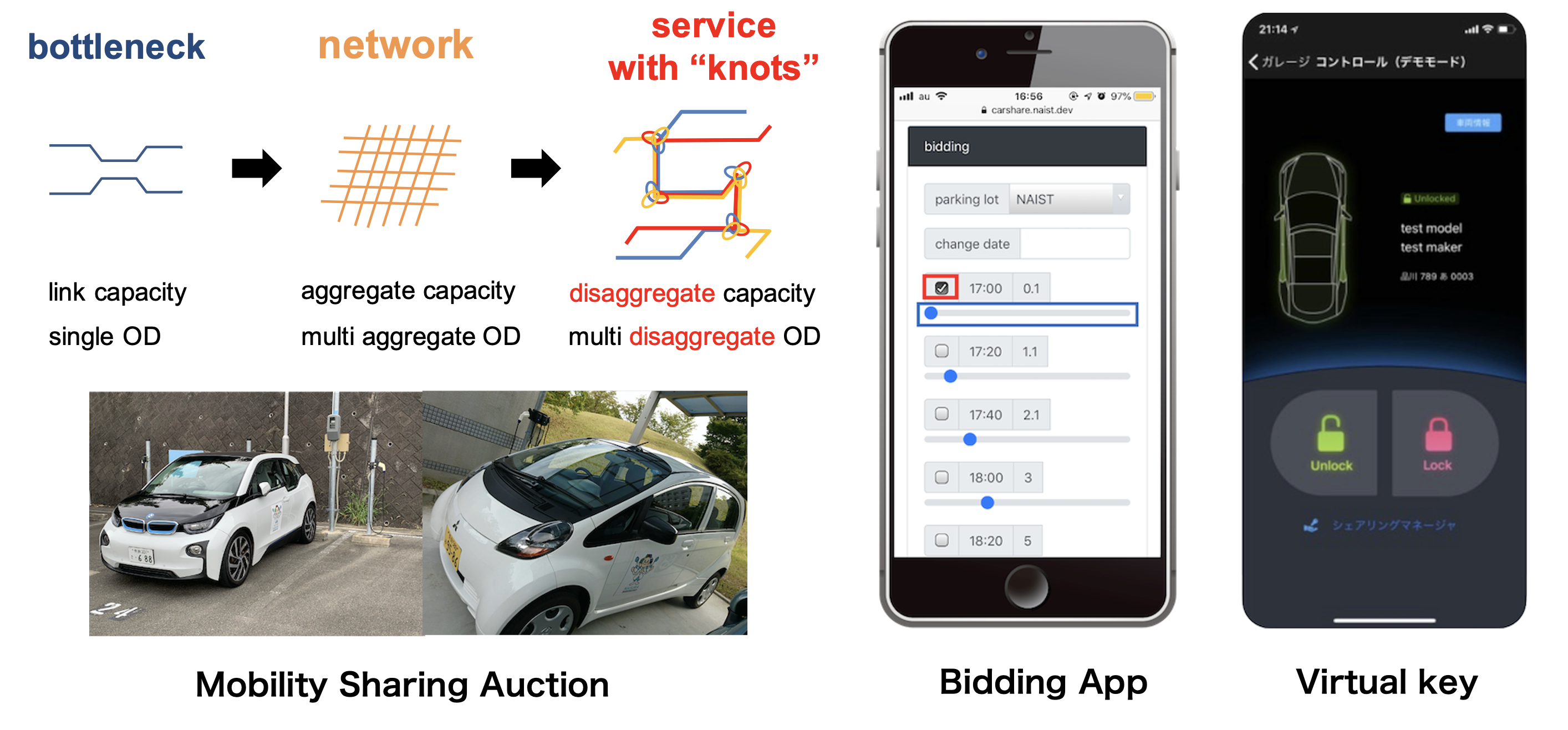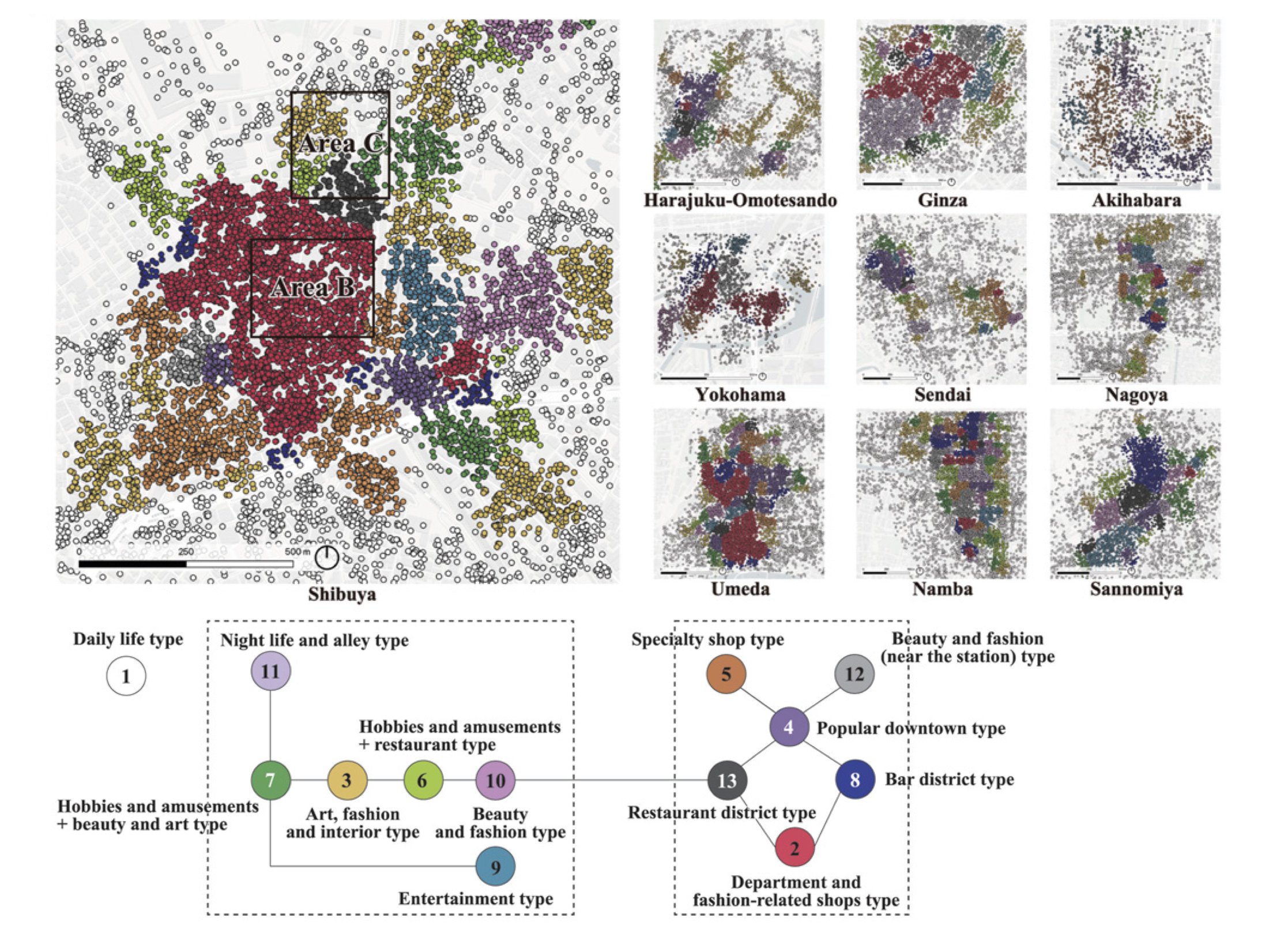Faculty

Socioeconomic System
Hara Yusuke
- Position
- Assoc. Prof.
- Affiliation
- Transport Innovation Research Center, Faculty of Engineering, The University of Tokyo
Research into Artifacts,Center for Engineering,The University of Tokyo
Department of Systems Innovation, Faculty of Engineering, The University of Tokyo
- Keyword
- Data Science for Urban and Transportation, Mechanism Design for Mobility Services, Travel Behavior Analysis, Co-evolution Model of Cities and Transportation
- hara(at)ti.t.u-tokyo.ac.jp※Please replace (at) with @ and send mail.
Designing Urban Activities and Travel Behavior
 Advancing Urban and Transportation Data Science
Advancing Urban and Transportation Data Science
 Mechanism Design for Mobility Services
Mechanism Design for Mobility Services
 Co-evolutionary Models of Cities and Transportation
Co-evolutionary Models of Cities and Transportation
Advancing Urban and Transportation Data Science
Technologies for sensing travel behavior and urban observations are rapidly expanding, and the ability to handle such data is increasingly in demand. To move beyond short-term forecasting and toward long-term predictions of urban activities and policy responses, it is essential to incorporate not only GPS-based mobility trajectories and urban/transportation network analysis but also decision-making models that capture human psychology. By doing so, we can develop data science methodologies that contribute to the design of urban behavior.
Mechanism Design for Mobility Services
New mobility services are being continuously implemented in urban areas, including on-demand mobility, autonomous vehicles, the integration of traditional public transportation with emerging modes, and the unified operation of passenger and freight flows. These innovations require not only advancements in service levels and technologies but also institutional designs that take user behavior into account. From the perspective of behavioral mechanism design, we aim to develop implementation strategies for introducing new mobility services into cities.
Co-evolutionary Models of Cities and Transportation
Over the past few decades, lifestyles within cities have undergone significant changes, while certain aspects of human life have remained constant. We aim to capture the long-term mutual interaction between urban development and changes in travel behavior through co-evolutionary modeling. Based on such theoretical and empirical approaches, we seek to explore the future form of cities, anticipate emerging challenges, and realize effective urban transition management.





